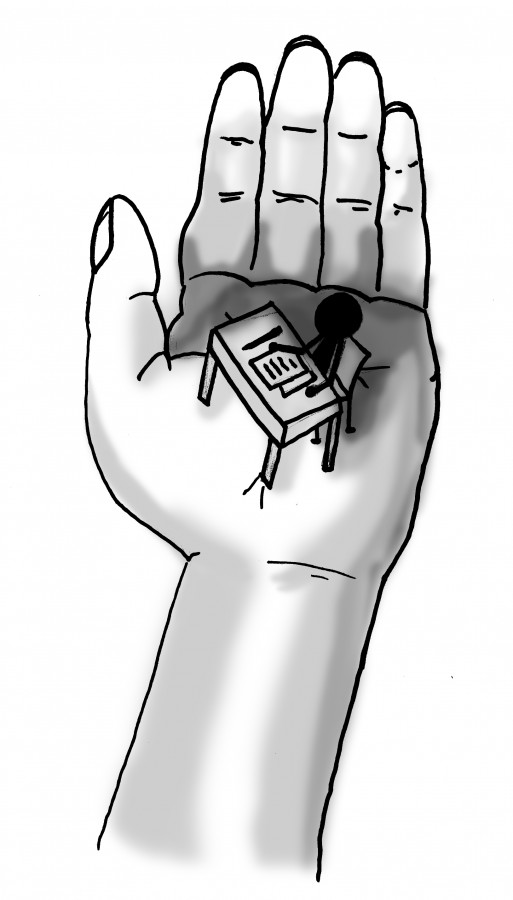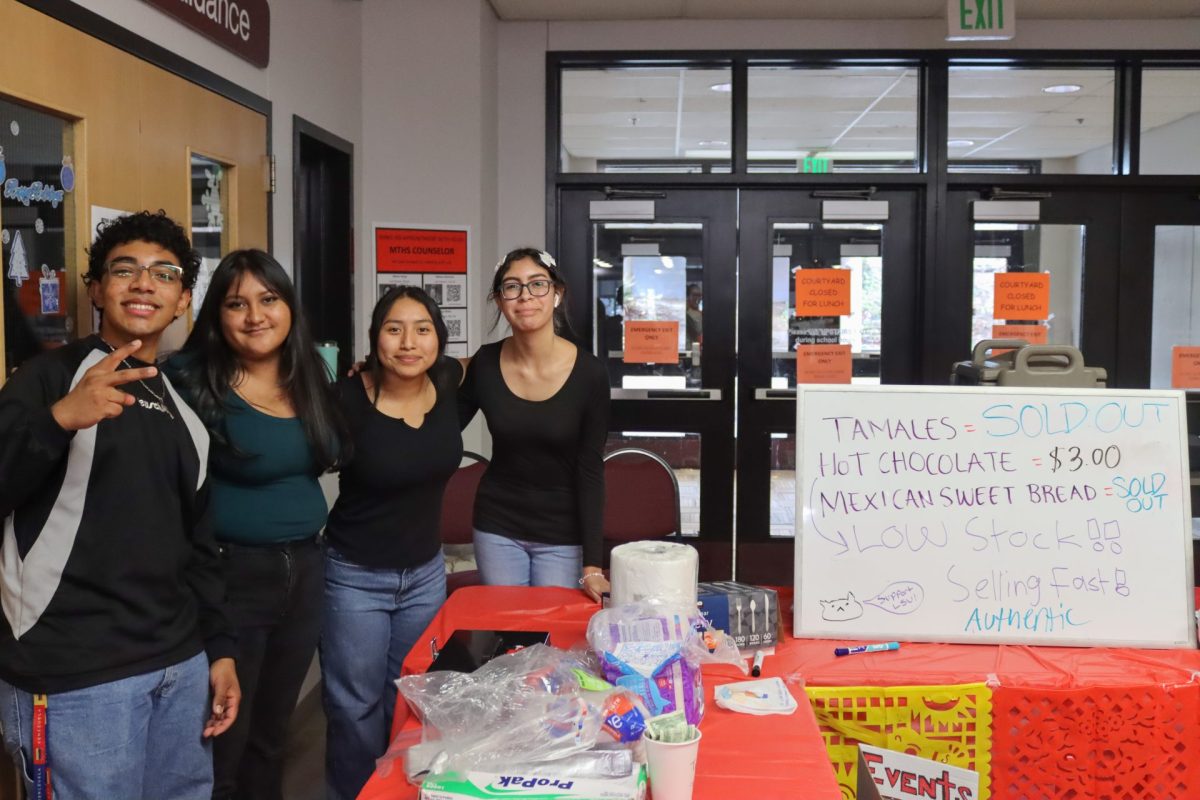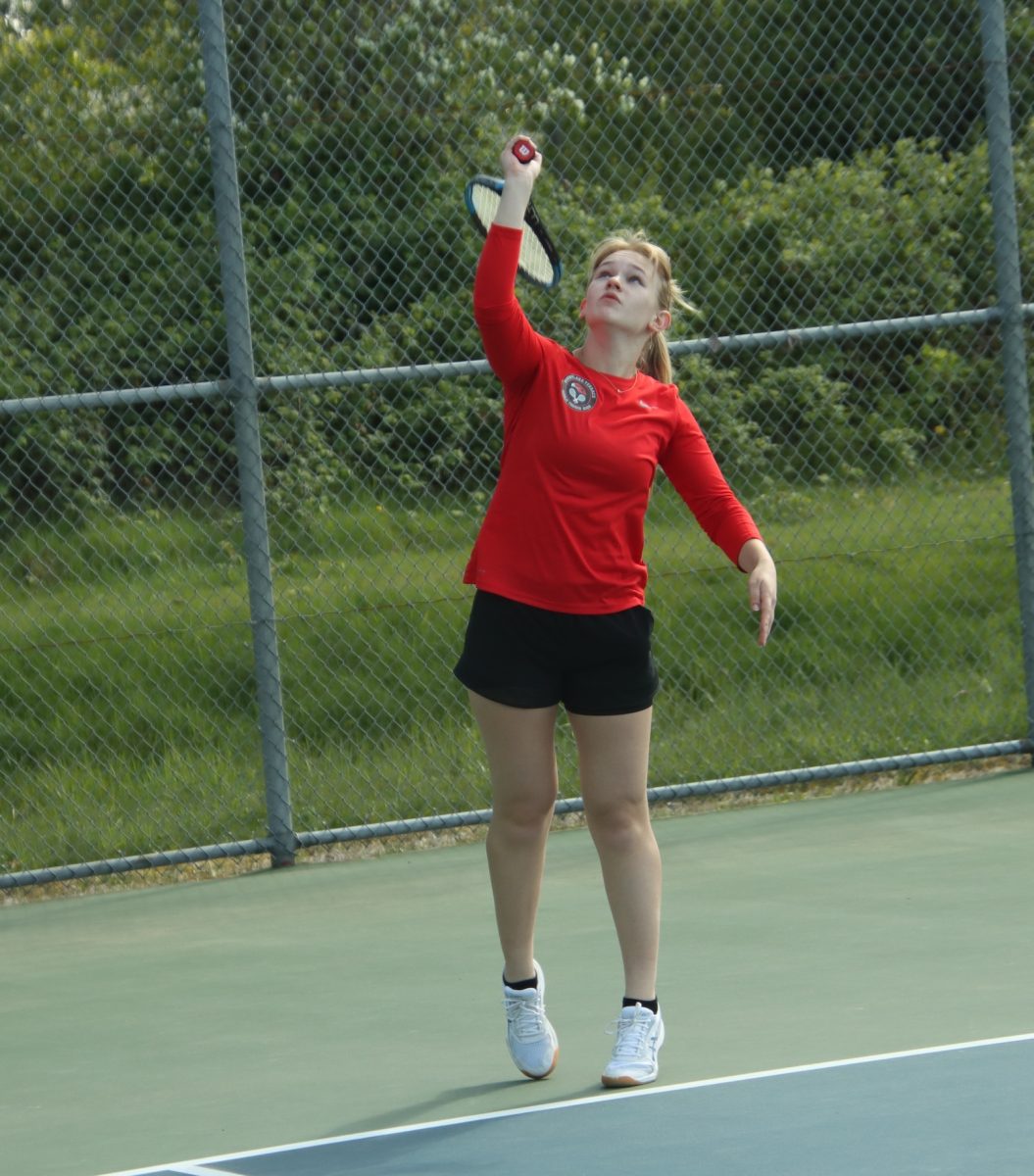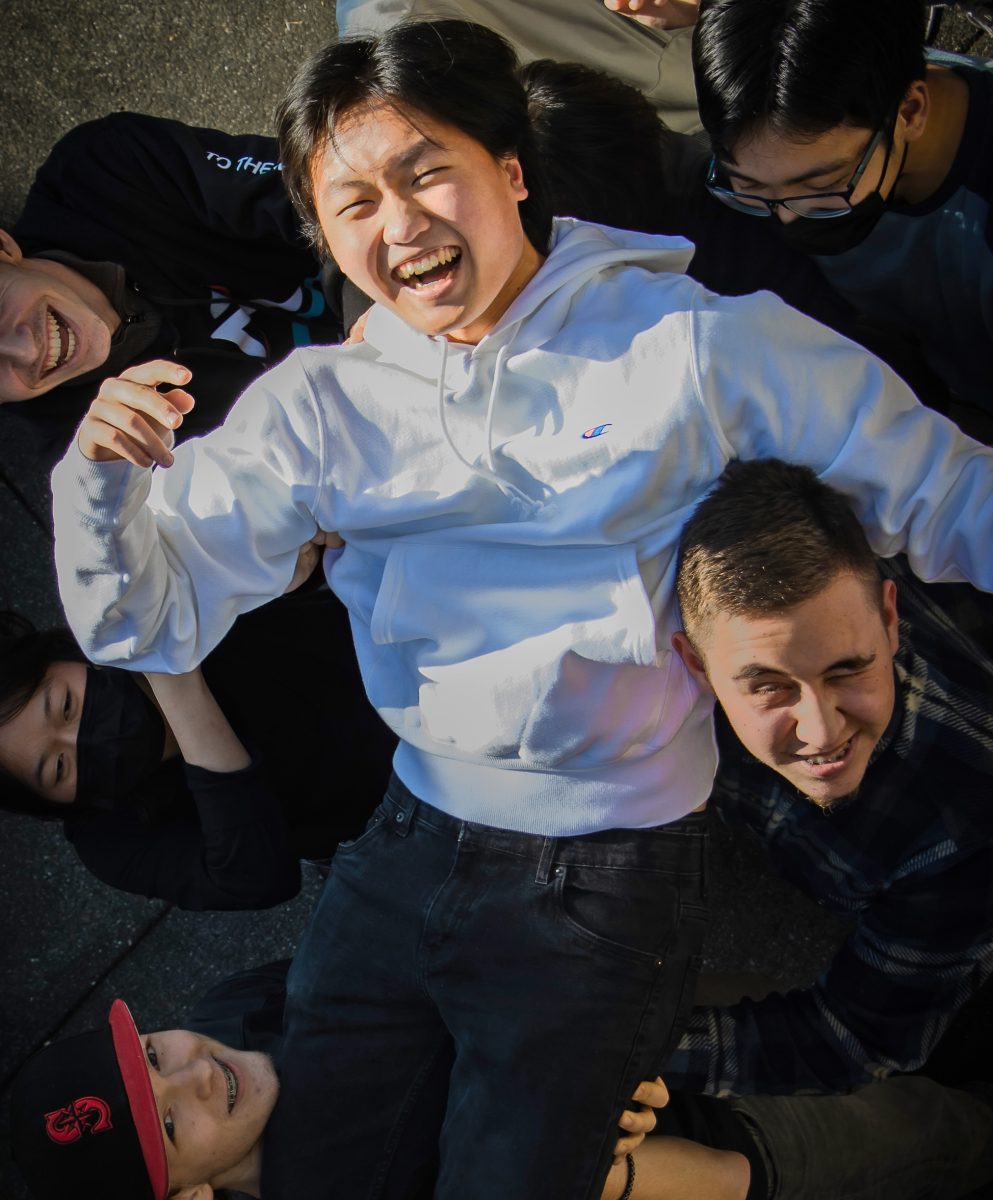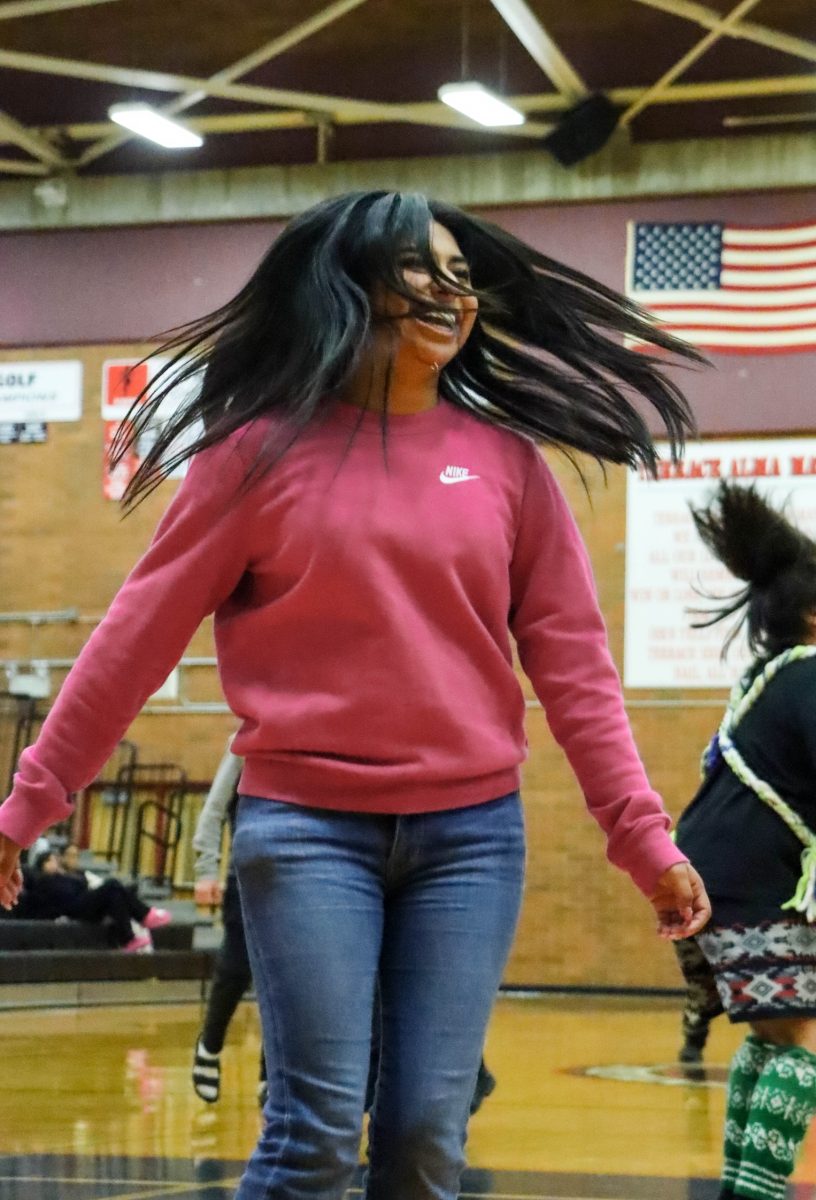She wakes up each morning, sometimes as early as 5 a.m., to make breakfast for her last remaining child in high school.
She walks downstairs in her night gown and fires up the stovetop and quickly begins to split eggs over the searing flames and hot metal.
As her son quickly swallows the lightly scrambled egg whites with a side of marmalade toast, she gathers up her son’s red and black backpack and neatly tucks in the boy’s books and shamble of papers.
She hugs the boy goodbye and says, “I love you,” before stealing away to bed.
What sets Ellen Pritchett apart is that she has done this routine without fail for all four of her children who attended MTHS and goes out of her way to help all of those near her.
Pritchett not only looks after her children, but she maintains a full-time business, is the president of the MTHS PTSA and volunteers countless hours simply for the joy of serving others.
When most people think of the words “service,” “support” or “encouragement,” those people could easily conjure up an explanation that looks and sounds something like, “helping others when they need it most.” But not many can take the time and the effort to take these unmaterialistic words and bring them to life.
So how can somone express their support, backing, aid and help for others?
In simpler words, what does it mean to be a supporter?
Career specialist Barb Brister answered, “I think it means [you] know a student or person well enough to know what questions to ask, to help them seek out what the answers are because you don’t want to answer all the questions for them. You want to help them figure out the answers to the questions that they have.”
Chemistry teacher John Traxler said, “It’s just the amount of positive words that we use.”
English teacher Peter White said, “giving someone else the tools to do their own work.”
It doesn’t take a genius to notice that Pritchett’s morning routine sounds equally strenuous when attempting to identify what key feature, word or action it takes to exactly pinpoint the charisma of the supportive individual.
But perhaps that is the issue. Maybe there is no absolute or ideal way to serve your community, direct a classroom or even love your own child.
Frankly, a chemistry teacher cannot wake up at five in the morning to make eggs for his students.
Equally, the principal cannot tell every student that walks through MTHS ‘I love you’.
It would be impractical – and a bit creepy.
Keeping that in mind, it is still unfair to say that all of aforementioned individuals are not excellent models of what it means to be a supporter.
After further inspection, a common thread of truth was noticeable: all of these people embrace the community as something larger than themselves.
Pritchett mentioned that, “If we’re doing acts of service for someone else, we’re showing that we care about them and it makes them feel more valued. It’s ok to be alive. It’s ok to go to school every day because somebody cares about me.”
During a discussion, Sports Booster Club President Tara Zhuel asked, “What’s the difference between the Seahawks and the local Hawks? There is a Seahawk community. when you see a T-shirt on or a jersey you know [that person] loves the Seahawks. There is one thing in common: they’re all rooting for the same team. Our four mile by four mile small family community can get that same mentality with the local Hawks team and that sense of community.”
You get the point.
This group of people seems to have a connection with the people in this 16 square mile community that is greater than a single connection, whether that be a job, a person a position.
Traxler makes himself available after school each day because he wants to, not because it’s a career obligation.
Pritchett chooses to involve herself and serve the MTHS community because she has a serving heart, not because her son is enrolled in MTHS.
Likewise, Zuehl looks to play a large role in the Sports Booster Club even though her son Timmy graduated with the class of 2014.
This group of staff and parents all seem to care about the MTHS community more than the average person, but they do so in their own unique ways.
And perhaps that is the key.
There is no neat package or users guide that allows you to imitate the ideal supportive role, instead it appears as though a person must build relationships and a sense of community, and then the means and the method will reveal itself.

